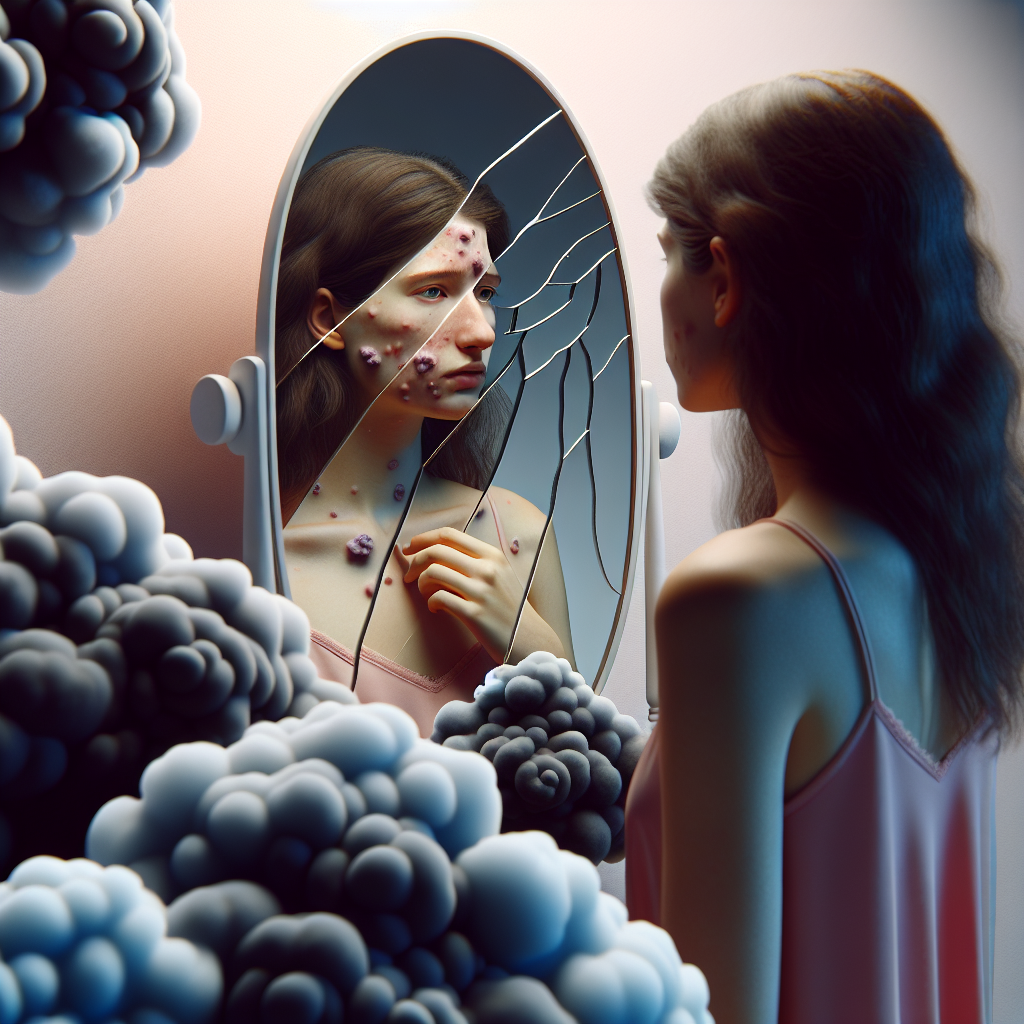Exploring the Connection Between Mental Health and Acne: Strategies for a Clearer Face
Acne is often perceived as a mere skin issue, but its roots can delve much deeper, impacting mental health and overall well-being. In this blog post, we explore the intricate relationship between mental health and acne, and provide effective strategies to achieve a clearer face. 😊
Table of Contents
1. Introduction
2. Understanding the Psychological Impact of Acne
3. The Science Behind Stress and Acne
4. Mental Health Strategies for Acne Management
5. Skincare Tips for a Clearer Face
6. Conclusion
7. FAQs

Introduction
Acne can be more than just a cosmetic concern; it can significantly affect one’s self-esteem and mental health. Those struggling with acne may experience anxiety, depression, and social withdrawal. Understanding the connection between mental health and acne is essential for developing effective management strategies that promote both clear skin and a healthy mind.
Understanding the Psychological Impact of Acne
Dealing with acne can be an emotionally taxing experience. It’s not just about the physical appearance; the psychological toll can be profound. Many individuals report feelings of embarrassment, frustration, and even shame due to their skin condition. This emotional distress can lead to a vicious cycle where stress exacerbates acne, which in turn worsens mental health.

Studies have shown that people with acne are at a higher risk of developing mood disorders. The social stigma associated with acne can lead to isolation and a reduced quality of life. It’s crucial to acknowledge these feelings and seek support, whether from friends, family, or mental health professionals.
The Science Behind Stress and Acne
The link between stress and acne is well-documented. When we’re stressed, our bodies produce more cortisol, a hormone that can increase oil production in the skin, leading to clogged pores and breakouts. This biological response explains why stressful events often coincide with acne flare-ups.
Moreover, stress can impair the skin’s ability to repair itself, prolonging the healing process of existing acne lesions. This creates a cycle where stress worsens acne, and acne, in turn, contributes to more stress.
Mental Health Strategies for Acne Management
Addressing mental health is a crucial aspect of acne management. Here are some strategies to help break the cycle of stress and acne:
1. Mindfulness and Meditation 🧘♀️
Practicing mindfulness and meditation can help reduce stress levels. These techniques encourage you to focus on the present moment, reducing anxiety about the future or regret about the past. Regular meditation can help calm the mind, which may, in turn, reduce acne severity.
2. Cognitive Behavioral Therapy (CBT)
CBT is a form of therapy that can help change negative thought patterns, making it an effective tool for managing stress and depression associated with acne. Working with a therapist can provide you with coping strategies to deal with the emotional impact of acne.
3. Support Groups 🤝
Connecting with others who are experiencing similar challenges can provide comfort and understanding. Support groups, whether online or in-person, offer a safe space to share experiences and advice, reducing feelings of isolation.
Skincare Tips for a Clearer Face
While addressing mental health is crucial, proper skincare routines can also contribute to clearer skin. Here are some tips:
1. Gentle Cleansing
Use a mild, non-comedogenic cleanser to wash your face twice a day. Avoid harsh scrubs that can irritate the skin and worsen acne.
2. Moisturize
Even if you have oily skin, moisturizing is essential. Look for oil-free, non-comedogenic moisturizers that won’t clog pores.
3. Sun Protection 🌞
Wear sunscreen daily to protect your skin from UV damage, which can exacerbate acne and lead to scarring.
4. Healthy Diet
A balanced diet rich in fruits, vegetables, and whole grains can support overall skin health. Some studies suggest that reducing dairy and high-glycemic foods may benefit acne-prone skin.
Conclusion
The connection between mental health and acne is complex, but addressing both aspects can lead to improvements in your skin and overall well-being. By managing stress through mindfulness, therapy, and support, and adopting a suitable skincare routine, you can take proactive steps toward a clearer face and a healthier mind.
FAQs
1. Can stress really cause acne?
Yes, stress can increase cortisol levels, leading to increased oil production and acne flare-ups.
2. Is it necessary to see a therapist for acne-related stress?
While not necessary for everyone, a therapist can help those struggling to manage stress and improve their mental health.
3. What skincare ingredients should I look for?
Look for products with salicylic acid, benzoyl peroxide, and retinoids, which are effective in treating acne.
4. Can diet changes help with acne?
Some people find that reducing dairy and sugary foods can improve their acne, but results vary from person to person.
Remember, while acne can be challenging, combining mental health strategies with skincare can make a significant difference. 🌟